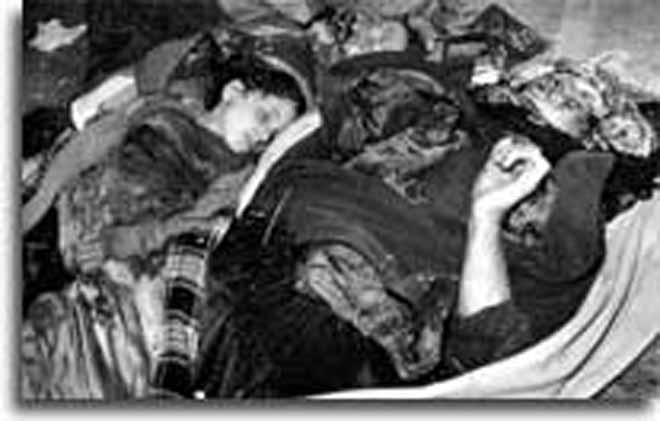Azerbaijan, Baku, 13 May / Тrend News corr E. Babayev/ For the first time the European Commission has condemned the bloody act committed in the Azerbaijani Khojali town.
"The European Commission resolutely condemned the bloody act committed in Khojali," the letter sent to the Coordinating Council of Azerbaijani Organizations of Benelux on behalf of the President of the European Commission Jose Manuel Barroso says.
On 13 May, Fuad Humbatov, honorary chairman of the Coordinating Council of Azerbaijani Organizations of Benelux and First Secretary of the permanent representation at the Council of Europe, said to journalists that the letter from the European Commission's President recognizes that Khojali has experienced a crime against humankind.
On the night of 25 to 26 February 1992 the Azerbaijani settlement of Nagorno-Karabakh, Khojali, was occupied by Armenian separatists, with active participation of military personnel and army tanks of the 366th regiment of the Russian army. The annihilation of the peaceful people continued for several days during which time the Armenians executed and killed prisoners, committed violence against women and children, cut off the heads of Azerbaijani military prisoners and had them hung up. During this crime, 613 peaceful people, including 63 children, 106 women and 70 elderly men, were killed within just one night.
The Coordinating Council of Azerbaijani Organizations of Benelux held a demonstration in front of the European Commission due to the 16th anniversary of the Khojali massacre and sent an official letter to the Commission urging to recognize the Khojali tragedy.
According to Humbatov, European Commission's impartial estimate of the Khojali tragedy is the first step towards the recognition of the genocide by international community. In his letter Barroso said that the Nagorno-Karabakh conflict must be peacefully solved and the European Commission will do its best to support the process.
The conflict between the two countries of the South Caucasus began in 1988 due to Armenian territorial claims against Azerbaijan. Azerbaijan lost the Nagorno-Karabakh, except of Shusha and Khojali, in December 1991. In 1992-93, Armenian Armed Forces occupied Shusha, Khojali and Nagorno-Karabakh's seven surrounding regions. In 1994, Azerbaijan and Armenia signed a ceasefire agreement at which time the active hostilities ended. The Co-Chairs of the OSCE Minsk Group ( Russia, France, and the US) are currently holding peaceful, but fruitless negotiations.
The correspondent can be contacted at: [email protected]






